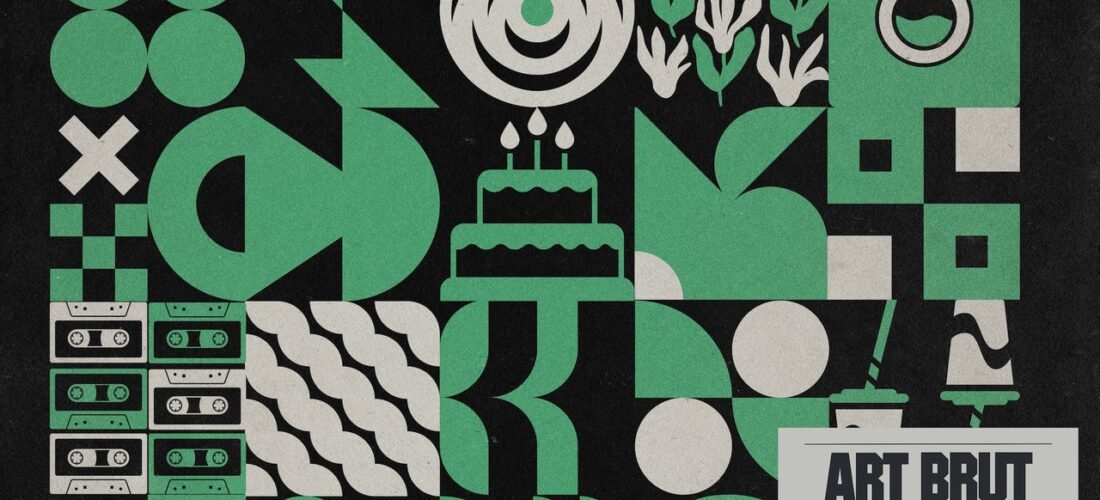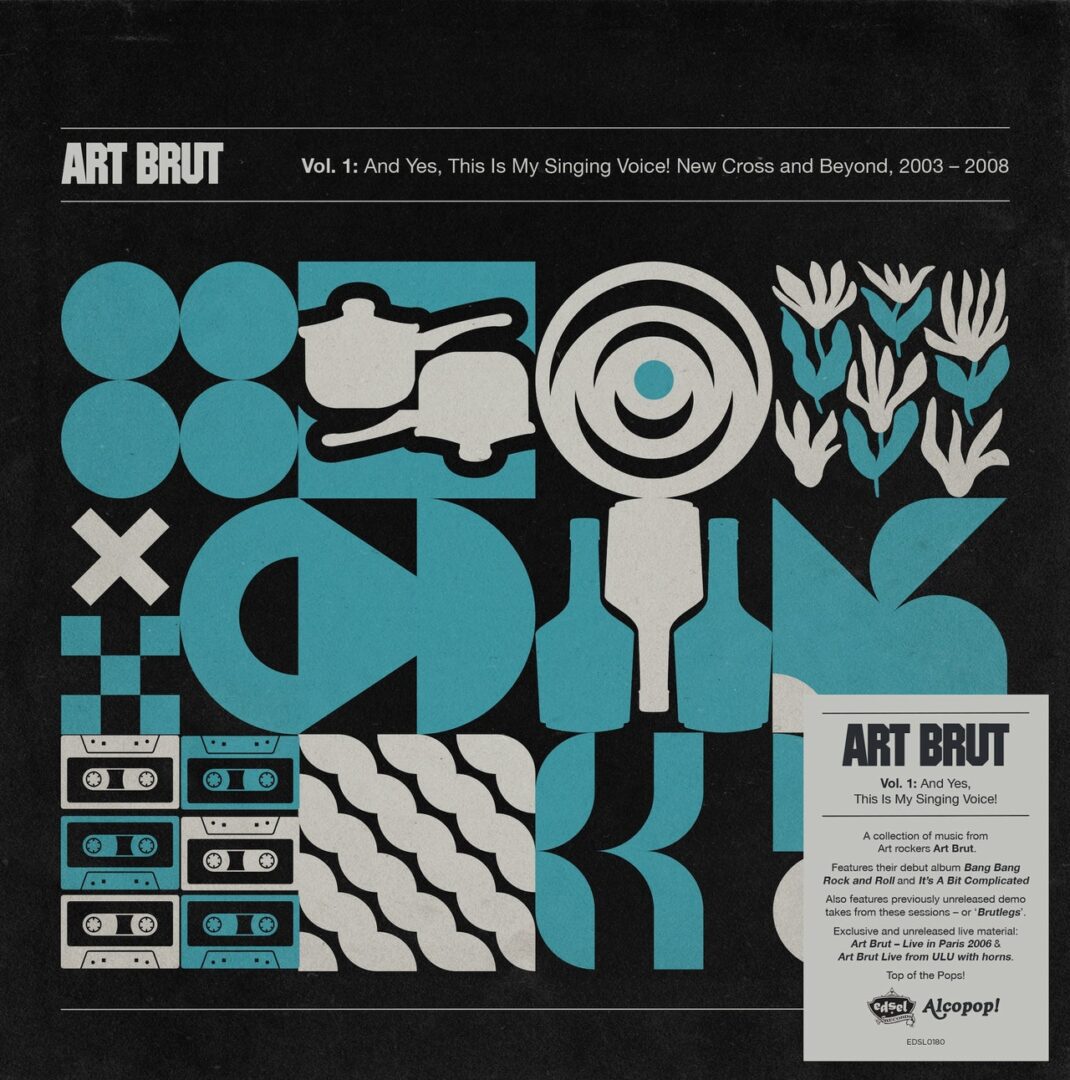In the Rebel Alliance to resurrect Real Rock’n’Roll, Art Brut frontman Eddie Argos viewed himself as Luke Skywalker. How else are we meant to interpret one particular live version of the band’s 2007 single “Pump Up the Volume,” which opens with John Williams’ Star Wars title theme before the horns crash into the song’s swaggering first notes?
When Art Brut first met in 2002, at a party hosted by short-lived London indie darlings Ciccone, NME’s number-one ranked album was Coldplay’s A Rush of Blood to the Head. The early aughts post-punk revival was bursting at the seams (Interpol’s Turn on the Bright Lights came out the same year), but the pop charts could barely manage a distortion pedal. British music media was similarly fractured—BBC’s Top of the Pops was sprinting towards its swan song, while NME and Kerrang! struggled to adapt to the velocity of new online-only publications. Armed with Argos’, well, brute sprechgesang and wielding their guitars like battle axes, Art Brut painted themselves as the saviors of a dying scene. On two new compilations titled after lyrics, the 2xLP A Record Collection, Reduced to a Mixtape and the 5xCD box set And Yes, This Is My Singing Voice!, Art Brut assemble their studio recordings, B-sides, and a handful of electrifying live cuts that argue that the scene, in turn, saved them.
In the nearly 20 years since the band’s debut, 2005’s Bang Bang Rock & Roll, it seems painfully clear that Argos has failed to write “the song that makes Israel and Palestine get along,” or to pen the next “Happy Birthday,” as he declared on “Formed a Band.” But Art Brut’s influence on contemporary indie rock has only grown since their last album, 2018’s Wham! Bang! Pow! Let’s Rock Out!. The echo of Argos’ cocksure yet self-aware monotone can be heard in Joe Casey’s tortured soliloquies for Protomartyr, the deadpan nonsequiturs of Dry Cleaning’s Florence Shaw, or the fever-pitch rants of Idles’ Joe Talbot. And while the band’s lyrical themes—falling in love with girls, starting a band to make out with girls, loving music more than making out—appear provincial compared to their politically minded disciples, Argos’ contemptuous streak has resurfaced in a recent crop of British bands like Yard Act and Squid. These newer groups might couch their music in the alienation of late capitalism, but fundamentally, they’re asking the same question that Argos barked back in 2005: “Why don’t our parents worry about us?”

